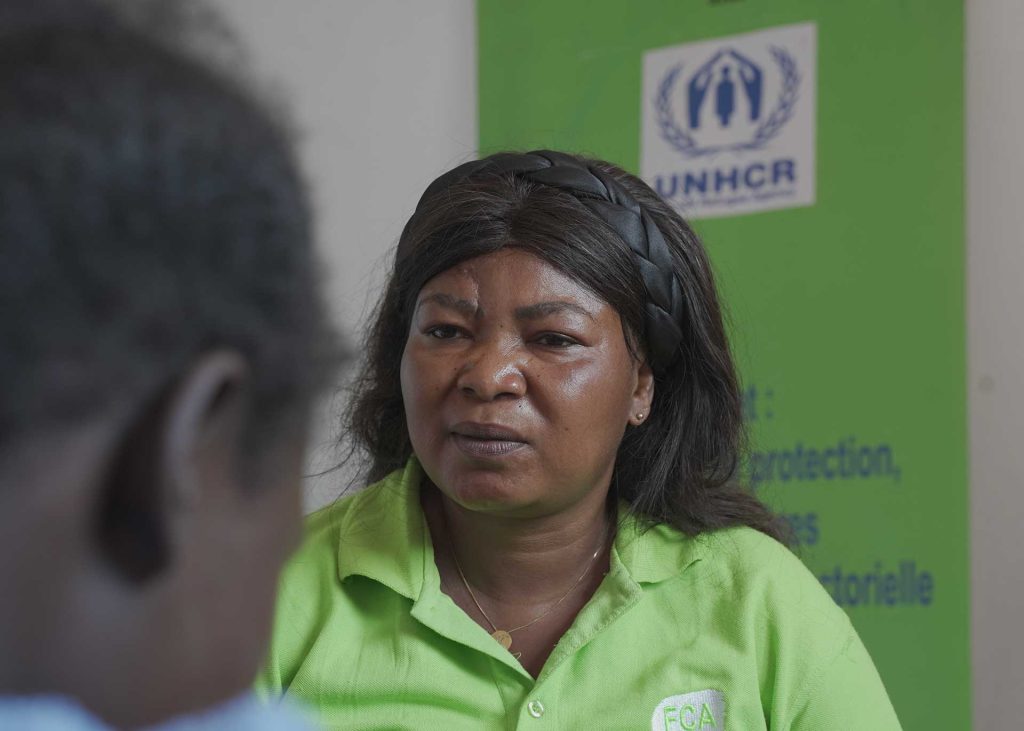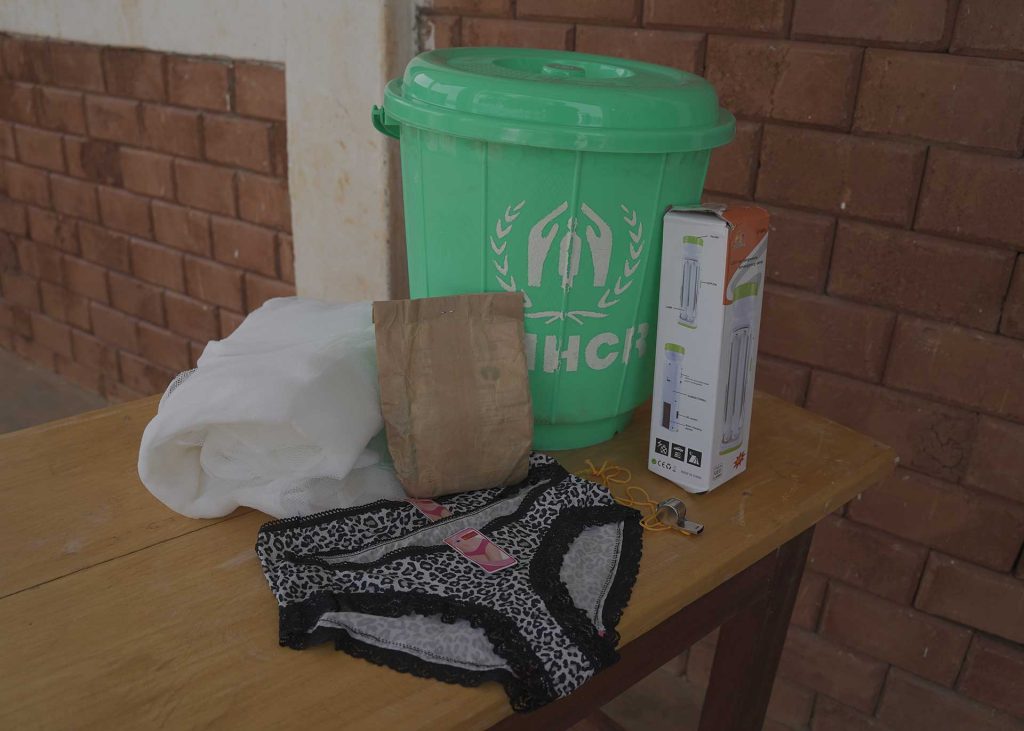Not feeling alone is crucial for survivors of gender-based violence
Finn Church Aid (FCA) works against gender-based violence in the Central African Republic by connecting survivors to healthcare services and psychosocial counselling.
WHEN ZITA KOUALET started her work as FCA’s psychosocial counsellor in Baboua, the hardest part was getting survivors of gender-based violence to consider sharing what they had gone through.
Koualet and her colleagues provide the first response in cases of rape, sexual harassment, or domestic violence in Baboua, Central African Republic. The project has been running for three years with UN Refugee Agency UNHCR funding. After careful awareness-raising in the community, people know how to approach Koualet in cases of violence or abuse.
“We pay for any transport or medical needs and provide counselling that focuses on the mental well-being. We can also help people file cases when they have been wronged”, she says.
“After that, the survivors are offered counselling. The more they feel they are supported, the more comfortable they are opening up about their experience and feel how it helps them move forward.”
Koulaet and her team also record the cases from their area in UNHCR’s database. Based on the countrywide data, NGOs know the needs and can tailor their responses nationwide.
Early marriage a key issue that leads to violence
Koualet mentions that early marriage is one of the core issues that leads to violence against women. When women are married off young, they are forced to interrupt their education – if they were in school in the first place. If women do not receive an education, they often end up staying at home doing housework and taking care of children, making them dependent on their husbands.
If a girl and her family refuse a marriage proposal, they might face consequences. In many cases of sexual violence, the perpetrator is someone they know from before, Koualet explains.
Usually, women with their own income suffer less from gender-based violence, which is why education is critical to preventing cases.
“Early marriage greatly slows down the development of young girls here. We work hard to discourage this custom and promote the benefits of education instead”, Koualet says.

Several of Koualet’s clients in Baboua, near the border to Cameroon, are only teenagers. One of them is 14-year-old Sylvaine. She was raped on her way home from an early evening event in her village. The assailant was a man who had earlier proposed to marry her, but Sylvaine and her family had declined.
“I had refused to marry because I wanted to continue my studies. Not too much later, I met the man when I was on my way home in the dark, and he assaulted me”, she says.
Sylvaine was first afraid to speak about the rape with anyone, but when she started feeling sick, she decided to confide in her sister. Her sister persuaded Sylvaine to talk to her mother, who had heard about FCA through an awareness campaign. FCA’s staff immediately took her to the hospital.
The doctor who treated her injuries quickly told Sylvaine she was pregnant.
“Our first thought was that we wanted to press charges against the perpetrator, but we decided that it would be disadvantageous for my future, my studies and marriage potential”, Syvlaine says.
Counselling comforts and helps building a way forward
The mental health consequences of gender-based violence are often paralysing. Ana is a 30-year-old single mother who takes care of her five children alone after divorcing her husband a few years earlier. Ana used to run a successful business as a vendor at the weekly market near the town of Bouar.
One day, she was assaulted and robbed by members of an armed group. They beat Ana and took all her possessions. Forced down on the ground, the men accused her of collaborating with another armed group. After driving over her with their motorcycles, they left her lying on the road.
“I lost all the money I had for supporting my children. They are now out of school, and during the month after the assault, I have not been able to work”, she says.

The people who found Ana referred her to FCA, who took her to treatment for her injuries and covered her hospital costs. Ana still feels pain in her ribs and back but is able to walk. While still fearing to visit the local market, Ana feels grateful for the psychosocial support she receives weekly.
“Thanks to that, I have been able to live, and the hospital helped me back on my feet”, she says.
Ana and Sylvaine say that the most important reason for their recovery is understanding that they are not alone. Sylvaine also says that the counselling has been comforting and helped her realise that what happened to her was not her fault. Her goal is now to go back to school and continue her education.
“Speaking with the counsellors has made me realise I also want to work with something that makes a difference. Caring for my child does not stop me. My siblings and mother will support me”, Sylvaine says.
The names of the survivors of gender-based violence have been changed due to the sensitive nature of their stories.
Text: Erik Nyström
Photos: Björn Udd